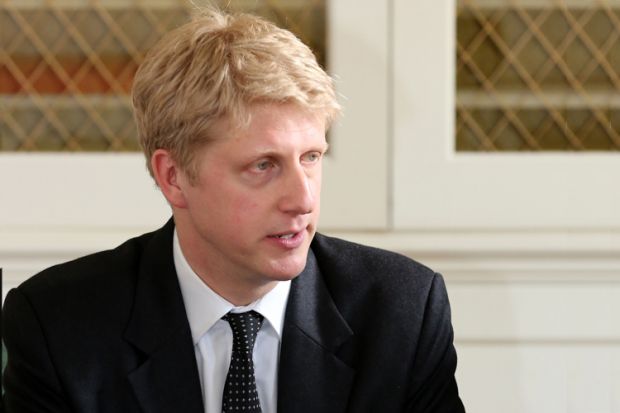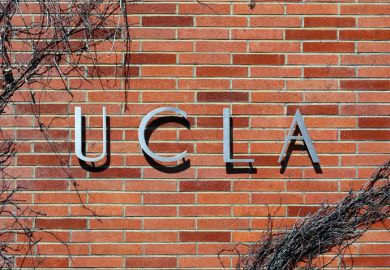Labour, as Talleyrand said of the Bourbons, has learned nothing and forgotten nothing.
At the last election, in 2015, then Labour leader Ed Miliband dismayed university leaders with his promise to lower the maximum tuition fee to £6,000 from £9,000. Few believed that he would be in any position to make up the lost funding in full from other sources of public finance. As a result, declining per student funding would damage universities’ ability to deliver world-leading teaching and research.
The Institute for Fiscal Studies noted at the time that such a change to our tuition fee system would be regressive, benefiting mainly wealthier graduates most likely to repay their loans in full.
The pledge even failed to command the support of experienced Labour figures, among them the former shadow chancellor. Ed Balls acknowledged in an interview with Times Higher Education that Labour’s proposals “clearly didn’t win universal support” and that its failure to find a sustainable alternative way forward for the financing of higher education had left “a blot on Labour’s copybook”.
Roll forward to Jeremy Corbyn’s £8 billion per year pledge to scrap tuition fees, and again, we find Labour heavyweights leading the way in warning of the chaos the party’s plans would cause.
Cautioning that scrapping tuition fees was simply “not credible”, Lord Mandelson has publicly questioned how it would be funded: “By spending less on health or housing? Or by raising general taxation, the burden of which would inevitably fall on middle-income families?...We have to be honest about the cost of providing higher education…I don’t think that’s an honest promise to make,” he said in another THE interview.
Foremost among the many undesirable consequences of a shift back to greater reliance on direct grants would be the need to reimpose student number controls that limit the number of university places available.
Far from deterring them, our system of income-contingent loans has enabled record participation rates among young people. Eighteen-year-olds from disadvantaged areas in England were more than 40 per cent more likely to be accepted for entry in 2016 than in 2010. With new student finance for part-time and postgraduate students, we are extending that support to a wider range of people than ever before.
This election is about whether Theresa May or Jeremy Corbyn is best placed to bat for Britain in the Brexit negotiations and forge our future as a go-to place for science and innovation. The last thing we need in this context is to slam on student number controls and jeopardise our research funding system.
Our economy needs more, not fewer, skilled graduates. And it needs a research base that benefits from the Conservative manifesto commitment to enable more scientists to work in the UK, backed by increases in R&D spending, so that we reach the OECD average – 2.4 per cent of GDP – within the next decade.
At the same time as we create the modern technical education system promised in our manifesto, we will ensure students and taxpayers receive strong returns from their investment in higher education. With last month’s passage of the Higher Education and Research Act, we now have the platform for performance we need as a knowledge economy.
The establishment of UK Research & Innovation and the Office for Students, as well as the vital link we have created between funding, teaching quality and student outcomes through the teaching excellence framework, will be a big part of that story.
Yet Labour’s regressive and unfunded 1970s throwback policies would do permanent damage to our skills base and sabotage the ability of our universities to fulfil their role as engines of social mobility. It has made this extravagant promise without the money to pay for it, meaning increases in our public debt, higher taxes or raids on other budgets.
Labour’s proposal could only mean a return to student number controls – a cap on aspiration. A policy for the few, not the many. It is another shambles from Jeremy Corbyn that highlights the risks we would run in allowing him to lead the Brexit negotiations in two weeks’ time.
Jo Johnson is minister of state for universities and science.
Register to continue
Why register?
- Registration is free and only takes a moment
- Once registered, you can read 3 articles a month
- Sign up for our newsletter
Subscribe
Or subscribe for unlimited access to:
- Unlimited access to news, views, insights & reviews
- Digital editions
- Digital access to THE’s university and college rankings analysis
Already registered or a current subscriber? Login






